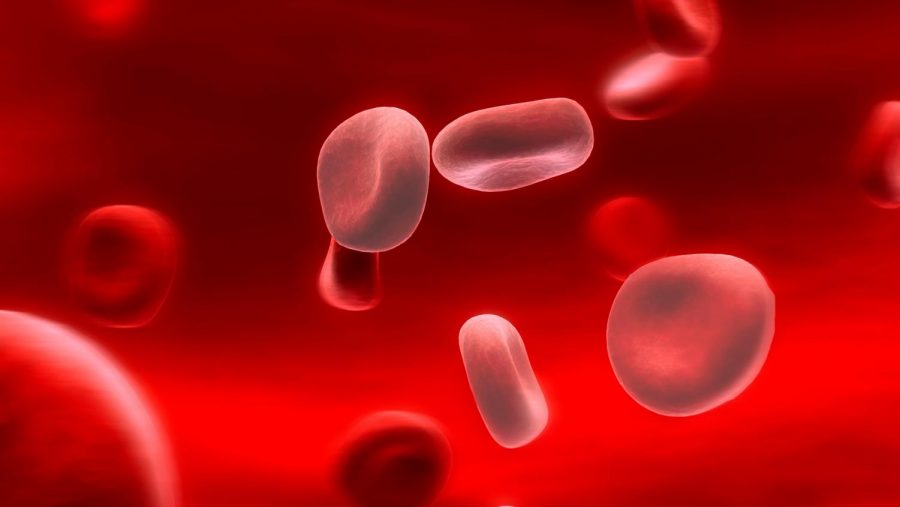Anemia Can Have a Serious Impact on Teens
December 19, 2019
Have you ever gotten up so fast to the point where you begin to feel dizzy when you looked up; and suddenly felt like you were about to fall? If you answered “yes” this may be due to the fact that you stood up too fast, or it may be a sign that you have anemia.
“Anemia?” you may ask. “Yes,” anemia a condition in which you lack enough healthy red blood cells to carry adequate oxygen to your body’s tissue.Anemia causes you to have iron deficiency in your blood cells. Because of this, the heart must work harder to make up for the lack of red blood cells or hemoglobin in the body. Hemoglobin is an iron-rich protein that helps red blood cells carry oxygen from the lungs to the rest of your body. If you have anemia, your body doesn’t receive enough oxygen rich blood, which causes you to experience various symptoms such as fatigue, dizziness shortness of breath, irregular heart rhythm and even cravings to eat things that are non-edible.
There are many different types of anemia, each with its own cause, and symptoms that can vary based on the person. Anemia can be temporary or long term, and can range from being mild to being very severe. According to Mayoclinic.org, certain types of anemia include aplastic anemia, sickle cell anemia, iron deficiency anemia and vitamin deficiency anemia.
Anemia is a condition that can occur in anyone, according to the National Institute of Health (NIH),” women are at a higher risk of this health disorder than men. NIH also reports that women, during their menstrual periods and pregnancy, along with people who donate blood frequently, people who don’t have enough iron or people who take certain medicines/ treatments are at a higher risk in getting iron deficiency anemia. people over the age of 65, People who experience chronic conditions such as cancer, kidney failure and diabetes are also at a higher risk for anemia.
Many teenagers, especially girls struggle everyday with anemia in silence. The reason teens are at risk of iron-deficiency anemia is because of their sudden growth spurts, and teen girls are more prone to anemia because of their menstrual periods.
Zaire Thomas, a 15-year-old Paint Branch student, struggles with the everyday symptoms of iron deficiency anemia. “The first time I found out I had anemia was when I was 11 years old after I had just gotten my menstrual cycle,” says Thomas. “When the symptoms happen I tend to experience things such as shortness of breath, dizziness, feeling nauseous, and headaches. When I’m in the shower I tend to feel very dizzy and my head starts to spin as everything begins to turn blurry.”
Another 15-year-old Paint Branch student, Noura Osegeura- Argasmou, also experiences anemia, but she has a special type called aplastic anemia. According to Kidshealth.org, aplastic anemia occurs when the body stops making red blood cells from an infection, illness, or other cause. Oseguera states that she experiences fatigue, shortness of breath, dizziness, a feeling of being unbalanced, loss of appetite, dry mouth and has strange cravings for inedible things.
She had aplastic anemia at the age of 14. “At first I didn’t know what it was for a very long time until I went to the doctor and they told me I was diagnosed with aplastic anemia, “ says Oseguera. “Despite all the effects of anemia there are ways to prevent getting this blood disorder and to lead a healthier lifestyle if you already are diagnosed with it. According to Mayoclinic.com, some ways to prevent anemia and lead a healthier lifestyle includes adjusting to a diet that includes iron-rich foods such as beef and other meats, beans, lentils, iron-fortified cereals, dark green leafy vegetables, and dried fruit, taking vitamin B12, and vitamin C foods such as citrus fruits and juices, peppers, broccoli, tomatoes, melons and strawberries. These will help increase iron absorption.
Being diagnosed with iron deficiency anemia and aplastic anemia doesn’t have to be a terrible thing, but it can be when people don’t know how to treat it, specifically teenagers.
I personally struggle with iron deficiency anemia everyday of my life, but at the same time I always find a way to take care of my body and try to reduce the symptoms as much as possible. One of the things I do is always carry a water bottle with me to keep myself hydrated in case I start to feel dizzy, or have gone a whole day without eating anything. I tend to feel very lightheaded and dizzy when I walk for a long period of time. I don’t have an appetite. I still force myself to eat regardless of how I feel because, in the end, I can’t let being anemic stand in the way of living my everyday life.













































